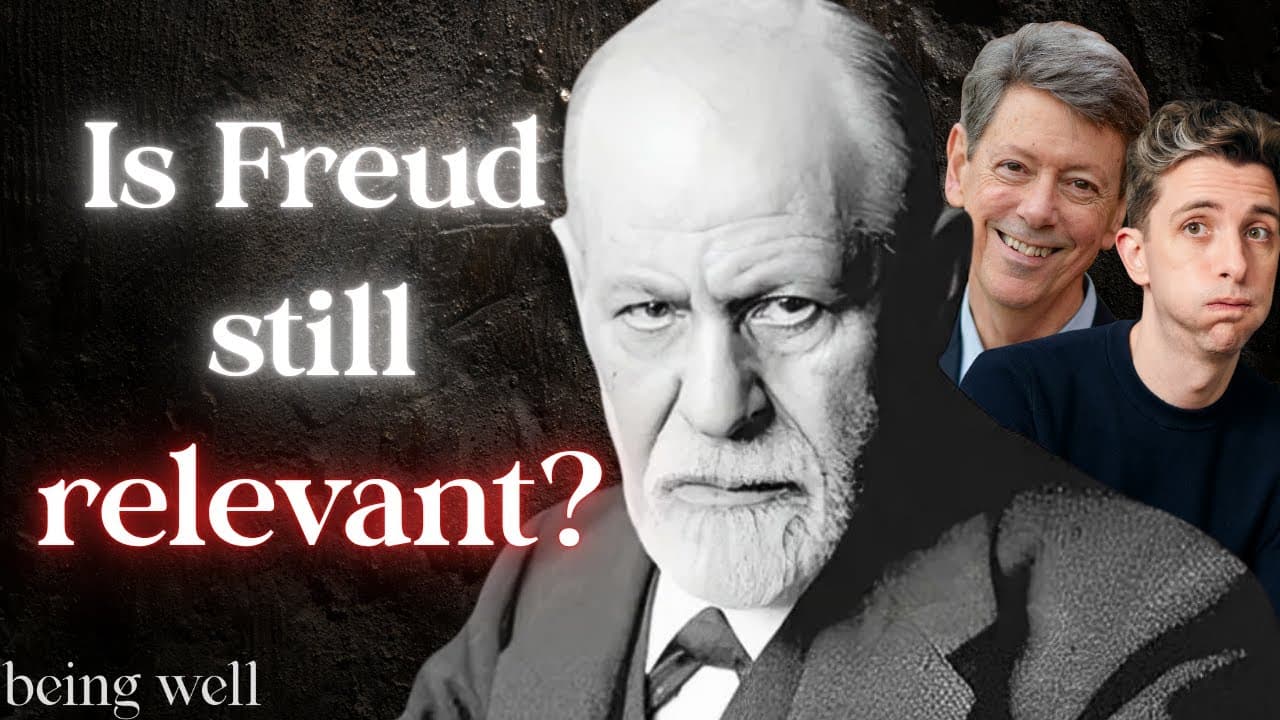In this episode of the Being Well Podcast, Dr. Rick and Forrest explore the ideas, context, and legacy of psychoanalysis, the often-controversial origin point for modern therapy. They discuss psychoanalysis’ early history and key concepts like the unconscious mind, repression, inner conflict, and transference. Alongside those major contributions, they wrestle with what hasn’t aged so well: the reductionism, murky ethics, and entanglements with colonialism and the Victorian worldview. This episode is both a tribute to and a critique of psychoanalysis as a rich, flawed, and deeply influential starting point for modern therapy.
Key Topics
- 0:00: Introduction: Why do this episode?
- 3:40: Appreciating historical and cultural context in therapy
- 7:15: What is psychoanalysis?
- 10:35: Freud’s key insight, and the five “big ideas” of psychoanalysis
- 18:00: The structure of the mind
- 24:00: Repression, catharsis, and “experiencing out”
- 27:35: Transference, countertransference, and defenses
- 29:10: Freud’s psychosexual theory and its legacy
- 32:55: What psychoanalysis looks like in practice today
- 41:05: Historical origins: Freud, hysteria, and the “talking cure”
- 46:45: Freud’s philosophical influences and colonial context
- 52:00: The moral and political implications of psychoanalytic theory
- 58:10: Freud’s personal contradictions and complicated legacy
- 1:07:50: Recap
Forrest is now writing on Substack, check out his work there.


